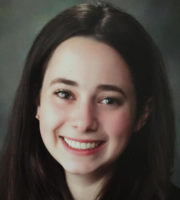
Survey features overwhelmingly liberal respondents
Researchers at Columbia University recently conducted a study on white people exploring “how Americans who identify as white or partially white think about their racial identities.”
The project, called “Facing Whiteness,” surveyed over 800 white people in three communities across the country. Researchers asked participants many questions including if they have received any benefits from being white and if they would change their race given the opportunity.
The project took place in Richmond, Virginia, Battle Creek, Michigan, and Cheyenne, Wyoming. Researchers lived in these communities for a month, during which time they “participated in and observed local life,” attending church services, visiting local businesses, going to political meetings and interviewing white residents.”
In an email to The College Fix, Samuel Lutzker, project coordinator at Columbia University’s Interdisciplinary Center for Innovative Theory and Empirics, said that the project “explores race through filming candid conversations with white people in which they discuss their racial identity.”
Data on the project’s website shows that upwards of 50 percent of respondents identified as liberal, with less than 20 percent identifying as conservative. Lutzker said researchers made an effort to reach out to people from across the political spectrum, though ultimately most of the participants were left-leaning.
Lutzker said that there were “two primary reasons for the underrepresentation of conservative participants in our sample.”
“The first reason is a lack of trust in academic institutions, particularly universities that are sometimes labeled as liberal. This lack of trust is exacerbated by the current adversarial political climate. As such, we had to build trust over time with our conservative participants in a way that we generally didn’t need to with liberal participants,” Lutzker said.
“The second reason is that conservatives often had a different understanding of our project than liberals. Whereas liberals tended to see a project asking white people to discuss their own race as a means to improve their own self-understanding and race relations, conservatives often thought that race wasn’t important to talk about or even that our project was further perpetuating racism.”
“If we had had more time in each location, we would have liked to build more trust with conservatives,” he added.
Whitney Dow, an award-winning filmmaker and educator, was the creator and director of the Whiteness Project. Dow has been producing and directing films on race for nearly two decades. Some of his projects have included films such as I Sit Where I Want: The Legacy of Brown v. Board of Education, The Undocumented, Two Towns of Jasper and When the Drum is Beating.
Dow told The Fix via phone that he wanted to examine how white people experience race because, according to him, they rarely think about it. Dow said the project has been five years in the making, and that it does not have a “liberal agenda” but is rather about trying to understand and explain how being white affects white people.
The project’s website features numerous testimonies from white participants interviewed by researchers. Melinda Adams, a survey subject from Battle Creek, said: “Without people acknowledging white privilege we can’t move along…We have to accept it, learn it, understand it, help and move forward with it to make the whole country better.”
In her interview with the researchers Adams claims that she “lost respect for people…because they deny their privilege.”
“I would say that I have maybe lost a few friends, but then I have to say that maybe those friends weren’t people that I…would want to be spending time with if their values are so different from mine.”
Another survey participant, Michelle Nuckols from Richmond, spoke about her evangelical background and her perceptions of race from childhood.
In her interview Nuckols urged white people: “Just be aware of your own privilege and your situation and use it to help other people and not help yourself.”
“Don’t be that person with the ‘let me talk to your manager’ haircut,” Nuckols said, claiming that such people “kind of expect things to go their way because they’re loud and white and complain about it.”
Though most participants were liberal, the researchers were able to talk to some conservative residents such as Duncan Philip from Cheyenne.
“I don’t see other human beings as being any better or any worse than me. Not based on the color of their skin. I just take people on one-on-one as individuals,” said Philip.
“I try and eliminate any of my past encounters or what I believe…..You can’t lump everybody into one category. Because it just doesn’t work.”
According to Lutzker, the project is funded by Andrew W. Mellon Foundation and the Chicago Media Project.
MORE: University workshops help white people develop ‘positive white racial identity’
MORE: University scrubs ‘safe space for White students’ from counseling lineup
IMAGE: RossHelen / Shutterstock.com
Like The College Fix on Facebook / Follow us on Twitter






Please join the conversation about our stories on Facebook, Twitter, Instagram, Reddit, MeWe, Rumble, Gab, Minds and Gettr.